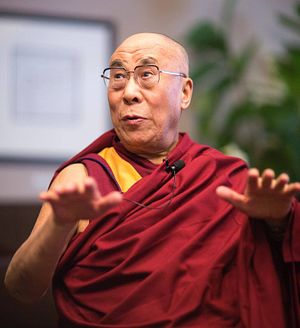On October 9 this year, the Chief Minister of the Indian state of Arunachal Pradesh, Pema Khandu, met His Holiness the Dalai Lama in New Delhi. His delegation represented a state with an 11.76 percent Buddhist population, and when he conveyed the regards of the people of his state and extended an invitation, the Dalai Lama informed him of his desire to visit the state in March 2017.
Arunachal Pradesh, which shares about a 1,126 kilometer frontier with China, is a disputed territory, with China claiming 83,500 square kilometers of the state as its own. More so, the region of Tawang within Arunachal has been hailed as the birthplace of the sixth Dalai Lama, thus directly complicating China’s ongoing conflict over Tibet. The implications of the Dalai Lama’s visit are therefore as strongly in the foreign policy realm as they are domestic.
In October, U.S. Ambassador to India Richard Verma attended a three-day festival in Tawang. This was in keeping with the United States’ stance that Arunachal belongs to India – a stance that China is uncomfortable with, as it holds that third parties to boundary issues must not take sides or get involved. While China criticized the visit on the grounds that it was a disputed territory and called it a disruption of the so-called hard won peace, the Indian Ministry of External Affairs put out a statement that it was hardly an unusual visit as the U.S. ambassador merely visited an Indian province.
The Dalai Lama’s proposed visit has created a similar furor. Late last week, China announced that if the visit were to happen, it would affect both border peace and stability and bilateral ties between the states. A Chinese Foreign Ministry spokesperson has said that China requires India to honor their political commitment to the boundary issue and reiterated that the Dalai Lama’s activities constituted anti-China separatism.
However the government in New Delhi has nevertheless declared that the Dalai Lama is free to travel to any part of India, as he is an honored guest. A Bharatiya Janata Party spokesperson has gone on to say that comments like these are uncalled for and they in fact do not help bilateral relations in any way.
While it does appear that China has been touchy over the issue of Arunachal Pradesh for successive weeks in October, this is not the first time that visits by the Dalai Lama or other dignitaries has been met with Chinese opposition. For example, China voiced opposition over granting regular stamped visas to Indians from Arunachal Pradesh, instead issuing stapled visas. Moreover, it protested the last time the Dalai Lama visited Arunachal in 2009. In each of those instances, there was no tangible escalation to a border conflict. The BJP too has passed off the comments very lightly – perhaps indicating that this is now routine.
Thus, with no intermittent threat to bilateral relations, and on the back of the BIMSTEC summit that has promised renewed focus on this region more broadly, Arunachal Pradesh has a new reason to celebrate – a much awaited impending visit from the head of Tibetan Buddhism.
































